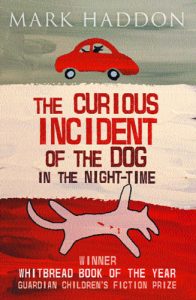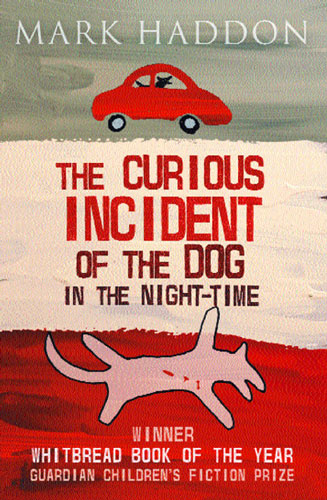Print Edition: April 1, 2011
By Alex Watkins (News Editor) – Email
 Mark Haddon’s The Curious Incident of the Dog in the Night-Time – as his protagonist, Christopher would say about any novel – is a collection of “lies about things which didn’t happen.” This interpretation highlights the kind of ironic humor afforded by the protagonist’s unique perspective as a 15-year-old boy who is severe-ly autistic, remarkably intelligent, and entirely logical.
Mark Haddon’s The Curious Incident of the Dog in the Night-Time – as his protagonist, Christopher would say about any novel – is a collection of “lies about things which didn’t happen.” This interpretation highlights the kind of ironic humor afforded by the protagonist’s unique perspective as a 15-year-old boy who is severe-ly autistic, remarkably intelligent, and entirely logical.
The work – which was released to rave reviews and critical recognition, earning the titles of Whitbread Book of the Year in 2003 and both a Globe and Mail and Vancouver Sun Best Book of 2003 – fleshes out the life of an autistic youth living in a strange, adult world with a surprisingly deft hand. We come to sympathize with Christopher for the trouble that his behavior (often rude or violent to outsiders, yet entirely logical in his explana-tion) gets him into with others, yet we also appreciate the stresses that his tantrums and require-ments for meticulous order place on the adults in his life.
The book is presented as if Christopher has written it, and starts off as a murder mystery, as his aid, Siobhan, advised him to write the kind of novel he would like to read himself; given his dislike of “proper novels” – due to their figurative language and fictitious nature – he aims to unravel the real-life murder of his neighbor’s poodle, Wellington, in the style of his beloved Sherlock Holmes. However, it quickly becomes much more than that as we witness the interaction between Christopher and the adults in his life; we soon are faced not only with additional mysteries for him to unravel – including the story of not only his mother’s affair but the question of whether she is not, as his father told him, dead – show a sensitive (yet not sentimental) por-trayal of what it is to be severely autistic in a world that is often quick to interpret these behaviors as crazy or even dangerous.
The brief note on the author indicates that Haddon worked with autistic individuals as a young man, and his experience and empathy shines through. Christopher has a great dislike for lies – which he cannot tell be-cause he has difficulty imagining things which “didn’t actually happen” – and this topic is often the source of the humor that he also claims is absent from the novel, given his inability to understand jokes. This approach is brilliant in giving insight into Christopher’s mind and his difficulties in inter-acting with others – everything he writes is certifiably true and straightforward, and for him this makes it devoid of humor, yet what makes us laugh about it is our appreciation of the validity of his points about the illogical aspects of certain events and behaviors that go unnoticed in our daily lives.
For example, he explains that he believes a metaphor “should be called a lie because a pig is not like a day and people do not have skeletons in their cup-boards. And when I try and make a picture of the phrase in my head it just confuses me because imagining an apple in someone’s eye doesn’t have anything to do with liking someone a lot and it makes you forget what the person was talking about.”
Overall, Haddon succeeds bril-liantly in allowing the reader in-sight into an autistic mind, and presents a compelling look at the challenges faced by not only those who experience it, but those who are touched by it as well. The result is a thought-provoking, complex novel presented in the simplest of language – yet this straightforward approach is


